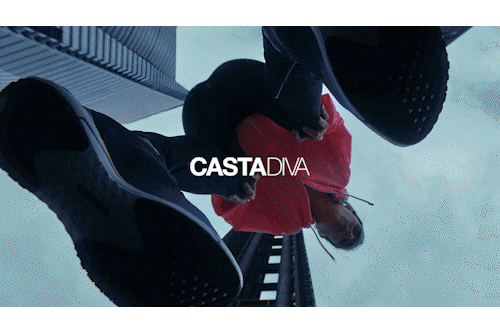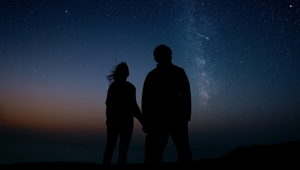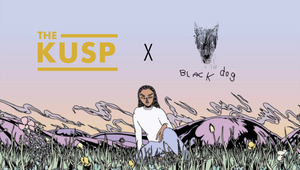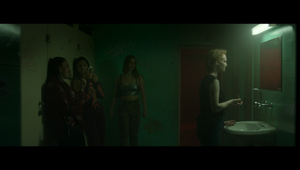
Meji Alabi: Tales of an “Experience Junkie”
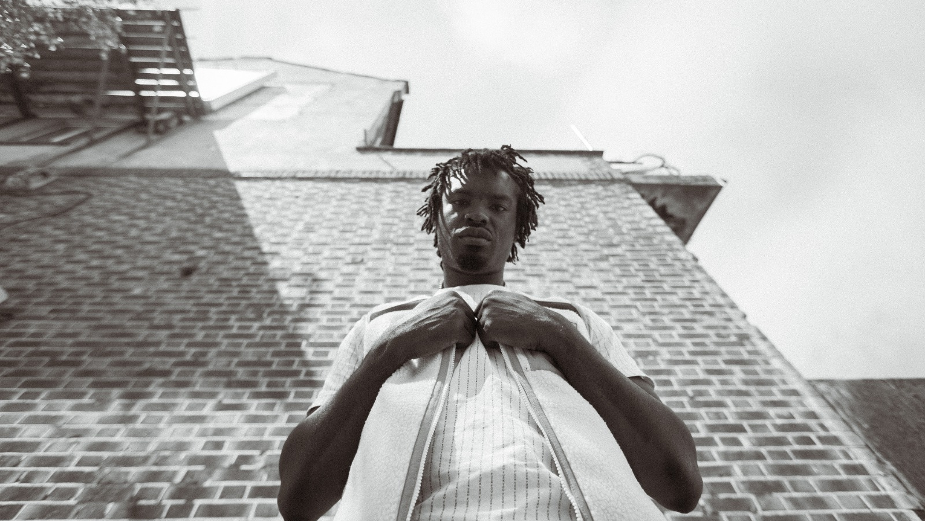
Growing up between the UK and the US with Nigerian parents, director and photographer Meiji Alabi has always put his particular cultural perspective to good use, blending the aesthetics of Africa with other cultural sensibilities to create images that leave their mark on you, whatever your background.
His years of jet setting around the world capturing the most incredible places and people have earned him a reputation that’s paying off. He’s just signed to RSA Films, having worked from the Black Dog roster for around a year.
This week also marks another big landmark for his career, with the release of the new Beyoncé film, Black is King. Meiji’s Lagos-based company JM Films produced the Nigeria segment of the epic project and he even personally co-directed the video for Brown Skin Girl, which premieres on Disney+ on July 31st.
At this pivotal point in Meji’s career, LBB’s Alex Reeves caught up with him to learn more.
LBB> Your new video for Chronixx just dropped last week. Judging by the atmosphere you captured there, it looks like quite an ambitious location shoot! What was the experience like?
Meji> We shot it in West Kingston, in a place called Tivoli Gardens, which was one of the rougher sides of town at one point due to some troubles they had in the past. Like it got really bad for the people there so you don’t just want to violate or overstep. So going in there and shooting… and knowing the history it can be daunting, but at the same time we were with great people. Everybody was really cool, welcoming, and open. Even into their homes… I guess that’s the beauty of filmmaking. You get to access places that you would never be able to see and I’m thankful for it.
LBB> What do you think is the key to getting that kind of access?
Meiji> One is having somebody on the ground who’s very comfortable with everybody they’re working with. And two, you could easily be kicked out of an area just as fast. So I think understanding that and having respect for the people there, knowing what you’re trying to do without overstepping is so important.
The thing about those areas is people can say yes now, but the rules can change in the blink of an eye. If you do something wrong, or act the wrong way or accidentally go somewhere you’re not meant to go, anything can happen.
Being street smart is key. But also, making sure that you’re hooked up with somebody who is respected, knows the area and does the talking for you. Then just showing respect to the people there. You’ve been given access to this person’s house, you need to have the right energy. I’ve never had a problem on a shoot in that regard. And I’ve shot in some rough places.
LBB> So you’ve never felt in danger?
Meiji> I think danger is inherent in what we’re doing. It’s part and parcel with some of the locations we’ve chosen to shoot. I’ve shot in Snake Park in Soweto, which people would understand as one of the townships of South Africa. This was for a Tanzanian artist called Alikiba. It was my first time working with him. It was a really fun video. We street cast all day. Some of the crew is black, some of the crew is white, and you can tell when people are getting nervous. They [the cast] ended up surrounding our cars on the way out. We weren’t going to leave until they were settled.
It sounds quite bad but it makes sense. A lot of people come, they shoot, they glorify your existence for their own agenda, when you’re living it. So you have to respect the community. You should contribute as much as you can. It’s just part of shooting in Africa. You get used to that type of situation.
LBB> Recently coronavirus has put you in some tricky production situations, too. Can you tell me about some of those?
Meiji> Yeah! We did a Wizkid and Skepta shoot in London during the corona period. I decided to shoot places that I felt more controlled in my area. I know the people, the shop owners, etc. We utilised a lot of west London - Ealing and Hanwell. For the artists’ and production’s sake we needed to make sure that we took the right precautions, had signage, I was in a full hazmat suit and the DP was in one too. We were all resistant at first but the producer insisted. It was also a deterrent to police, to show we’re serious about Covid-19. Because no matter what you do, there are always going to be a lot of people on set, especially when you’re dealing with hip-hop and afrobeats artists. Their boys come and people start standing around. And when the police came (because the police did come) I did feel like it made it less of a big deal.
The other one, we shot on a farm. So the same precautions. We kept it very low key - a minimal crew, a boy and a girl. Just kept it sweet.
It’s weird. I’ve only done four shoots this year. I’m usually all over the place. But I guess it’s been a blessing to sit back and evaluate things rather than just go, go, go - flying around.
I shot in Mumbai recently. Going out there and having the experience of bonding with the crew. A lot of the crew did everything. You find out that this guy’s a DP and a gaffer, it just depends on the day. And they’re all directors too. I just love that hustle! I like meeting people with that drive.
And shooting somewhere different. I take it for granted because I shoot abroad so much. Not a lot of people have the chance to shoot in India. I guess I’m kind of an experience junkie. I just try and do everything. Any location, there’s so much to explore.
LBB> But not so much right now…
Meiji> Unfortunately it’s so much harder to fly. This Covid thing is going to change my approach to work. And I think it’s happened at a good time for me. It’s allowed me to slow down. Now I want to do some things that are a bit more targeted. That involves me stepping towards more commercial work and narrative projects.
LBB> Which is why it’s good timing to see you getting signed to the RSA Films roster!
Meiji> It’s a big deal for me. A huge progression! Places like RSA and Black Dog, when I first started these are the places you’d look at and want to one day be on their roster. It says Ridley Scott Associates and I’m a big fan of Ridley. So to be associated with him and working with that team is huge.
And not only do they produce great commercials, but they can also nurture great film talent. And that’s the direction many music video directors want to head in in the long run.
LBB> A lot of your videos use Black and often specifically African aesthetics and take them in directions that might be a little unexpected. Is that something you consciously want to achieve?
Meiji> I’ve been having a lot of conversations recently on topics like Blackness. In my work I try to deliver an aesthetic that feels natural to me and that serves the song, when it comes to a music video. Artists want to be represented in a certain way. If it’s party music or has a certain type of beat that African music has, we try and keep up that energy. I try to make sure that an African audience can watch it and see things that are familiar to them spun in a different way. And at the same time I’m showing an international audience new things out of Africa that are spun in a way that’s palatable for them too. It doesn’t alienate anyone but I’m expressing how I am as a person.
Both of my parents are Nigerian but I lived my first 10 years in the UK, my second 10 years in America, then came back to the UK at about 20. I’ve never actually lived in Nigeria. I’ve only ever visited. And it’s mainly filmmaking that’s brought me back home. Filmmaking reconnected me back to my roots.
I’m lucky enough to be blessed to do work with artists like Wizkid, Davido, Burna Boy, Tiwa Savage - these are artists that are creating amazing music and bringing Africa to the world. It’s a pivotal time in afrobeats and African music - in Africa in general, to be honest. I’m happy to be contributing to that.
We also worked on the new Beyoncé film, Black is King. My team at JM Films produced the Nigeria segment and co-directed the video for Brown Skin Girl, as well. Who thought we’d be working with Beyoncé?
What my background means is I have a great understanding of Nigerian and African culture, but I have the eye of somebody who’s never been overexposed to it. I can still see these things that other people can’t. I try to put that in my work.
Nothing feels too alien to me. Even Caribbean culture. I have three brothers who are from the Bahamas. I lived there for about a year-and-a-half when I was a kid. It allows me to work with a broad range of people and make authentic work.
LBB> Do you have a favourite country or location that you’ll always go for if there’s a chance to shoot there?
Meiji> I wouldn’t say no to a lot of places. Each comes with its own delights. For example Ukraine is such a lovely place to shoot. I shot Ride It there. It comes with such great production. Incredible locations, props, cast, art department, crew - all that stuff is fantastic. One thing you might miss is cultural diversity. In Ukraine it’s hard to find a great range of Black faces or even other ethnicities. So I keep seeing the same guy in videos shot there. I cast him in my video!
Then Nigeria is great because whatever you want to do you can accomplish for the most part. And I’d say the same about Jamaica. When I was walking around Jamaica I was like “I want to shoot on that rooftop” and they were like “yeah, let’s go”. It wasn’t a long conversation. They just spoke to the owner.
In Nigeria we’ve blocked off an entire freeway for a shot, impromptu. When you shoot in rougher locations you need security. And if they can pull it off, they will. The concept for the GT Bank video was an empty Lagos. And Lagos is busy! No matter what there’s somebody there, all the time. I needed to clear out areas, so I had security to help move things along quicker. We cleared the market, the freeway, some open streets - a lot in a very short time - something you wouldn’t be able to do in the UK. The costs would be ridiculous.
The hardest part of that job was just logistics. It went as smoothly as possible but there were some moments. There was one where some guys kicked off in an area called Lagos Island. It’s just like anywhere else. If you have a certain look in your eyes, I don’t think people tend to mess with you. Me and the crew just walked away and left the security detail to deal with it.
When you’re dealing with things like that everyone just wants the same thing. Sometimes it’s ‘area boys’. You can get permission from the president, the area boys will still be there trying to take a chance and get something off you. They try it on you and sometimes they get loud. But they never get violent. Most people don’t want to be violent. They aren’t criminals; they’re opportunists.
LBB> Another big job that I’d love to hear more about is your Tiwa Savage - 49-99 video. That’s a really different vibe to your work with GT Bank!
Meiji> For sure. What we tried to do on that was sell Africa to the world in a different way, with Tiwa as the centrepiece. There are a lot of big and small cultural references in that video, for example when she’s standing on top of the yellow buses. That’s called a molue [the type of bus that the song references and 44-99 is a phrase coined by the godfather of afrobeats, Fela Kuti. It means, 49 sitting, 99 standing]. In fact, my van [which Meji is joining me on video call from and is bright yellow] is actually based on those.
When she’s lying down with the long braids, that’s a Versace reference, but the braids are very African.
Each scene had meaning. The scene at the beginning with the guys fighting, that’s a special type of Nigerian martial art called Dambe. I flipped it to make it an underground fighting ring where Tiwa is now the kingpin with the monkey on her shoulder. It was fun to show African culture in a different and cool way.
In terms of experiences, the first location is an old railway compound. We’re already behind schedule. We’re shooting, then all of a sudden I see a bunch of security and a guy in a big chief outfit walking up. Tiwa’s like, “We need to shoot now!” And I see my production team walk over there. They’re like, “Yo, this guy’s about to shut down the whole shoot.” Why?
LBB> What was his actual position?
Meji> I think he was an official at the railway station who’d decided to flex his muscles. And that’s exactly what he did. Sometimes it’s not about having the right documentation; it’s about understanding culture and people. The guy didn’t want anything except for someone to respect him at that moment, to recognise that he’s the man. He literally wanted someone to say “Hello sir! How are you, sir?” in our cultural way. “Thank you so much for allowing us to be here. We won’t be too long.” Once my producer sorted that out, we were good to do what we wanted.
LBB> Do you have any other particular favourite memories of experiences that filmmaking has allowed you enjoy?
Meiji> Two years ago maybe, we went to a dangerous area in Lagos. It was a video for a New York artist named Casanova. He likes to go to the gritty areas of different places. He’s somewhat of a Ross Kemp of rap! So we ended up going to shoot in a place called Shitta.
We got some guys to come down from the north of Nigeria with hyenas. It was a crazy experience having them on set. We styled them and they did their thing. Sometimes when you’re in these places, some beautiful area in Barbados or Lagos or in Jamaica, and sometimes in the gritty areas, you just look around and realise it’s a crazy life. I never thought I’d be here right now surrounded by hyenas, with everyone here waiting on me for the next move. As a director, sometimes you have to be thankful. People want me to think of something cool for them and bring it to life. That’s what drives me forward.






